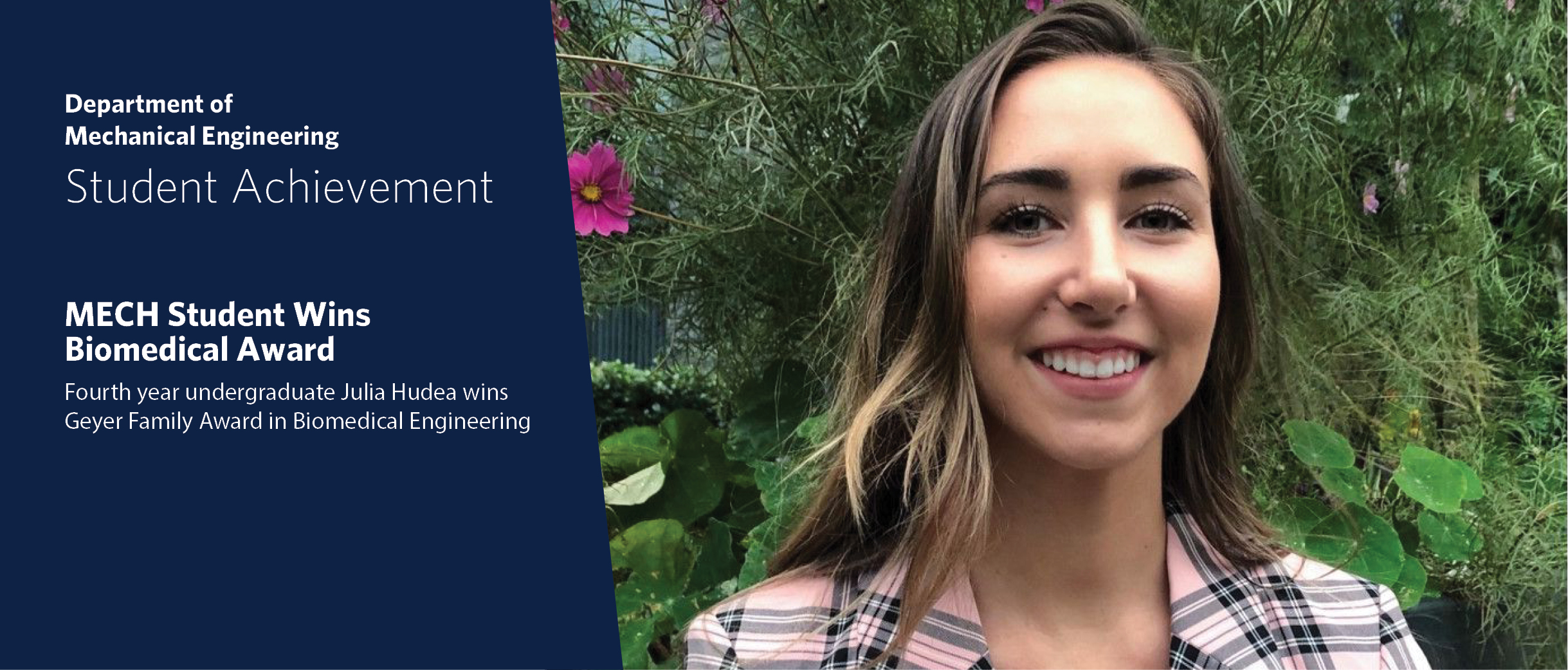
Julia Hudea, a fourth-year student in the UBC mechanical engineering program’s biomedical concentration, has been awarded the Geyer Family Award in Biomedical Engineering.
The award recognizes biomedical engineering undergraduate students “with an entrepreneurial spirit, an interest in the local biomedical engineering industry and demonstrated leadership and communication skills.”
Hudea is part of Fraxure, a student team that aims to help people with fractured thigh bones move around during recovery. She and her teammates are designing a mobile device that pulls the broken bone back into alignment, then applies a cast on the affected leg.
“Non-surgical fracture treatment can confine patients to a hospital bed for months, potentially leading to pressure sores, infections and other complications,” says Hudea. “Our technology aims to improve patient mobility while also improving outcomes.”
Now exploring venture possibilities with entrepreneurship@ubc, Fraxure was formed by members of UBC’s Biomedical Engineering Student Team in 2015, when they set out to address femur fractures caused by boda boda accidents in Africa. The high cost of surgery and the shortage of surgeons in the country have meant that many patients there are treated using external traction and fixation.
Hudea is also part of a capstone team that is working on a way to deal with bleeding in the upper gastrointestinal tract, an area that is difficult to access using conventional treatment methods. Fatal in five to 30 per cent of cases, upper GI bleeding is typically caused by peptic ulcers and esophagus-related conditions.
The Kastrup Lab at UBC’s Michael Smith Laboratories has developed a powder that promotes coagulation and stops bleeding, but it tends to clog existing delivery devices such as catheters. Hudea and her teammates are developing methods to integrate the medicine with a pressurized flow of carbon dioxide to reduce clogging and enable treatment even in hard-to-reach places such as the upper GI.
Hudea intends to continue along her entrepreneurial path after graduation, applying her business and engineering knowledge to address critical clinical needs. To this end, she is currently enrolled in UBC’s New Product Development course, learning about the factors that influence the fate of new products.
“My main takeaway from the course has been to be open to any opportunity and to continue to identify challenges in the medical field, as this is the first step to ensuring the success of a product,” says Hudea.
This article originally appeared on Applied Science News & Events.